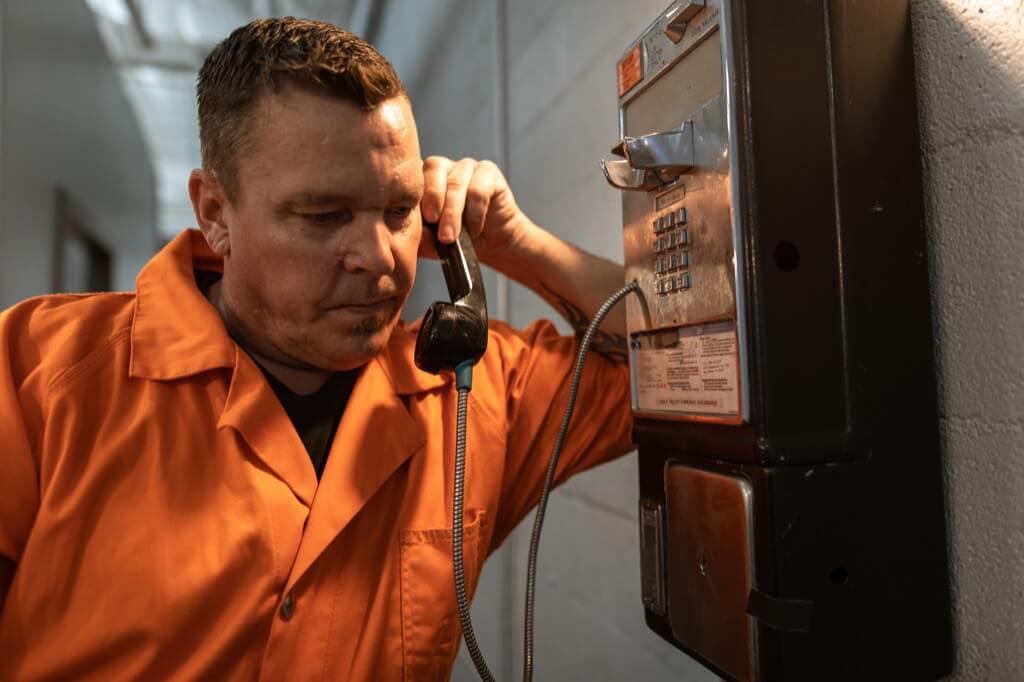Being arrested can be a nerve-racking experience, often far from the dramatic scenes we see in movies. The notion of the “one-call rule” isn’t as simple as it seems, with the reality depending on various factors such as the severity of the offense and your conduct during the arrest.
In the legal landscape, your rights can be a maze, and the portrayal of these rights in Hollywood isn’t always accurate. While the police may not always offer the Miranda warning during the arrest, anything you say can still be used against you. Hence, it’s often advisable to remain silent until you have legal counsel.
Access to a phone call, a fundamental right, isn’t always as straightforward as it appears. The Hollywood portrayal of a single phone call being the lifeline isn’t entirely accurate. Rules differ from state to state, and the police can allow you to make calls for various necessary purposes, but this privilege can be revoked if misused.
State laws provide guidelines for phone call rights. However, your behavior during the arrest can influence the number of calls you’re allowed. Maintaining composure and cooperation can play a vital role in securing your communication privileges.
In some instances, officers may facilitate practical arrangements, such as a trip to an ATM to acquire bond money, providing a more efficient process for both the detainee and law enforcement.
Despite the legal framework, interpretations can vary, leading to discrepancies in the implementation of these rights. It’s essential to understand the complexities involved and approach the situation with a level head.
Understanding the Difference: Jail vs. Prison
Understanding the distinction between jail and prison is essential. While jails are managed locally by sheriffs, prisons fall under the jurisdiction of the state’s Corrections administration. In Canada, jails are overseen by provincial governments, while prisons are under federal management.
Know Your Phone Rights
Post-conviction, your phone rights might differ, depending on the state’s regulations. While access to phones is often available at specific intervals, the costs can be substantial. The Federal Communications Commission (FCC) recently intervened to address exorbitant phone service charges in jails, reducing the cost of a 15-minute collect call to $3.15 from a previous rate of $17. This significant change is aimed at promoting family contact, which has been shown to decrease recidivism, benefiting both inmates and society.
Navigating the Changes: Impact of FCC Interventions
The FCC’s involvement has brought relief to inmates and their families, allowing for improved communication without the burden of exorbitant fees. This reduction in call costs represents a step toward fostering stronger family bonds and reducing the challenges faced by those with loved ones in prison. However, some corporations are challenging the new rates in court, asserting that they do not cover the costs of maintaining prison networks.
Bonus Fact
The reform in call charges initiated by the FCC has the potential to positively impact the lives of inmates and their families, fostering better communication and support systems that can contribute to successful rehabilitation and reintegration into society. Despite the ongoing legal disputes, the focus remains on enabling meaningful connections between inmates and their loved ones, creating a more conducive environment for rehabilitation and societal well-being.
The Right to Legal Counsel in South Africa
In South Africa, individuals have the right to legal counsel upon arrest, as guaranteed by the country’s legal framework. The law ensures that a person has access to a legal representative during questioning and court proceedings. This right serves as a fundamental safeguard to protect the interests of the accused and ensure fair treatment within the justice system.
Navigating Communication Privileges: South African Protocols
South African protocols dictate that arrested individuals have the right to communicate with a family member, friend, or legal representative following their arrest. While the specifics may vary based on the circumstances and severity of the offense, the law generally allows for necessary communication to arrange important matters. Understanding these communication privileges is crucial for individuals undergoing the legal process in South Africa.
Legal Frameworks and Due Process: Ensuring Fair Treatment
The South African legal system upholds due process to safeguard the rights of the accused. The legal frameworks ensure that individuals are treated fairly and have access to necessary resources during the arrest and subsequent legal proceedings. Understanding these frameworks is vital for both the accused and legal representatives to ensure that the rights of the individual are respected and upheld throughout the legal process.
Recent Reforms and Implications for South African Arrestees
Recent reforms within the South African legal system have emphasized the importance of protecting the rights of those under arrest. These reforms aim to create a more transparent and equitable legal process, promoting accountability and fair treatment for all individuals involved. Understanding the implications of these reforms is essential for both law enforcement agencies and the general public to uphold the principles of justice and fairness within South Africa’s legal landscape.
A Step-by-Step Guide to Handling Your Arrest
Stay Calm and Composed
In the event of an arrest in South Africa, it’s crucial to remain calm and composed. Avoid confrontations with law enforcement and maintain a respectful demeanor throughout the process.
Invoke Your Right to Legal Counsel
Exercise your right to legal counsel immediately upon arrest. Request to have a legal representative present during any questioning or legal proceedings to ensure your rights are protected and upheld.
Communicate Wisely
Communicate judiciously with law enforcement, focusing on providing essential information without self-incrimination. Be mindful of your words and refrain from discussing the details of the case without legal advice.
Understand Your Charges
Seek clarification on the charges brought against you. Understand the nature of the allegations and ask for comprehensive information regarding the legal procedures that will follow.
Follow Due Process
Adhere to the due process requirements outlined by South African law. Cooperate with law enforcement within the boundaries of your rights and obligations, ensuring a smooth and transparent legal process.




